The Southwest Division has been one of the strongest in the NBA, sending at least four teams to the playoffs seven times since the league's expansion to 30 teams in 2004. For comparison, all five other divisions had seven seasons with such accomplishment combined, in that time period.
San Antonio, the most successful of those teams, had to deal with some atypical drama this summer. With Pop's future questionable, the Spurs will like to try to keep their 21-year postseason streak alive.
Houston came as close as anyone believed one could get to dethrone the Warriors. Anything less than a conference finals will be a disappointment.
After losing Cousins and Rondo to Western Conference rivals, New Orleans could lose Anthony Davis in two years as well. The Pelicans need to show a lot more commitment to their star player.
Explore the NBA Draft 2024 with our free NBA Mock Draft Simulator & be the GM of your favorite NBA team.
Dallas will look to rejuvenate their roster and begin the transition to a new, post-Nowitzki era, giving the reins to Dennis Smith Jr. and Luka Doncic.
Memphis is still trying to figure out their new style. The "Grit and Grind" era is history, and the Grizzlies are starting to mix up their team.
These Southwest Division teams made some moves in the offseason, but not all of them were well thought of. Here are the worst contracts each team signed this following summer.
#1 Houston Rockets - Clint Capela
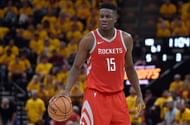
After the departure of Trevor Ariza, the Rockets couldn’t afford losing another starter. This explains why they rushed to sign Clint Capela to a 4-year/$90 million contract.
However, around the time the signing occurred, the team with the most cap space in the league was Sacramento, with about 11 million dollars in space. If they were to offer Capela a contract, the most they could have offered on a four-year deal was less than 48 million dollars. That means Houston signed Capela to a contract worth almost twice as much as the second biggest offer he could get.
Furthermore, Portland's Jusuf Nurkic, who played similar minutes and had a close production level to those of the Swiss last year, signed for just 48 million dollars with the Blazers. Even though Capela is more valuable to the Rockets than Nurkic is to Portland, this huge difference is not proportional.
Houston needed to bring back Capela, but by a quick evaluation of the market, they should have known a more modest offer would have sufficed.
#2 New Orleans Pelicans - Julius Randle
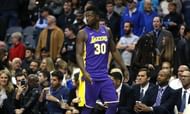
New Orleans' worst decisions this summer were linked to the players they let go, rather than the ones they brought in. The Pelicans lost Cousins to Golden State and Rondo to the Lakers, supposedly because of low offers. They found a decent and cheap replacement in the point guard position with Elfrid Payton, but in the frontcourt, they added the questionably fitting, Julius Randle.
Randle signed a 2-year/$17.7 million deal with New Orleans, after a breakout season with the Lakers, averaging 16.1 points and 8 rebounds. Even though he showed potential as a "point forward" in LA, it's not really what the Pelicans were missing. Cousins shot 34% of his field goal attempts from beyond the arc, leaving the paint to Anthony Davis. Randle, on the other hand, took 87% of his shots from inside the paint.
Teaming Davis and Randle might make New Orleans a good rebounding team, but will also create a spacing problem for them on offense.
#3 San Antonio Spurs - Marco Belinelli
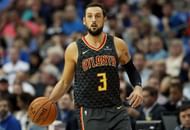
San Antonio was tied last year for the second oldest team in the NBA, with an average age of 28.9. Instead of trying to rejuvenate the roster, possibly through the Kawhi Leonard trade, they kept their average age around 29 after re-signing Rudy Gay and adding DeRozan, Cunningham and Marco Belinelli.
While DeRozan is a worthy All-Star and Cunningham signed for just a minimum deal, Belinelli got a 2-year/$12 million contract from the Spurs. His off-the-bench production for Philly was great, but they only took the Italian sharpshooter for a midseason minimum deal, after he was bought out by Atlanta.
Additionally, San Antonio already has a guard-heavy roster; including Belinelli, the Spurs have seven guards on their roster, perhaps eight if you include Manu Ginobili. It doesn’t seem wise for them to pile up guards while their forward depth is lacking.
Belinelli is a welcome addition to any playoff team, but the price they had to pay to bring him along is too high, especially considering the number of guards they already had in place.
#4 Dallas Mavericks - DeAndre Jordan
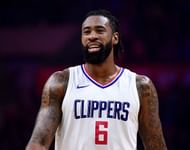
The Dallas Mavericks are obviously the most forgiving franchise in the NBA. They signed DeAndre Jordan to a 1-year/$22.9 million deal, three years after he backed out from a contract he already agreed to sign with the team. Nevertheless, it doesn’t explain why they offered so much money.
DeAndre is an old-school center, making a living protecting the rim and rebounding in bunches. Many teams today are looking for a more versatile center or at least one who can score further than three feet away from the basket.
Jordan also had a decline in the areas he excelled at. In his last year for the Clippers, he averaged less than one block per game and dropped under 65% from the field for the first time in five years.
Supposedly, no other team in the league that had a serious interest in DeAndre was willing to pay him as much as Dallas did. Instead of bringing in a young center with more offensive skills and continue the youth movement in the team, they opted to overpay a 30-year-old player with an outdated style of play in a regressing form.
#5 Memphis Grizzlies - Omri Casspi
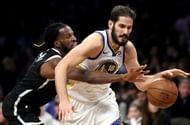
The Grizzlies pulled off a great move by signing restricted free agent, Kyle Anderson, to a 4-year/$37.2 million deal, adding a good young small forward to the rotation. But after that, for some reason, Memphis officials thought they needed another wing, so they signed Omri Casspi to a one-year contract for the veteran's minimum.
Casspi had a solid season playing for the Warriors, who waived him just before the playoffs, depriving him of his first postseason appearance. Even though he was a good three-point shooter for his career, Casspi struggled the past year from downtown, scoring just ten three-pointers for the season, a career low.
The more baffling aspect of this signing is the fact that Memphis doesn’t necessarily need a wing. Currently on their roster, after some additional trades have transpired, the Grizzlies have seven different players who can play the wing positions. Casspi is a valuable contributor, but it might have been smarter for Memphis to thin wing depth and give their younger guys more playing time.
Spurs Fan? Check out the latest San Antonio Spurs depth chart, schedule, and roster updates all in one place.
